Developing problem-solving abilities Addition & Subtraction Worksheets for Ages 5-8
7 filtered results
-
From - To
Unlock your child's potential with our “Developing Problem-Solving Abilities Addition & Subtraction Worksheets” for ages 5-8. Tailored to ignite curiosity and enhance critical thinking, these engaging worksheets provide a dynamic approach to math. Your young learner will tackle real-life scenarios that foster understanding and mastery of addition and subtraction concepts. With colorful visuals and interactive problem-solving exercises, children will build essential skills while having fun. Perfect for home or classroom use, these worksheets help students gain confidence in their mathematical abilities, ensuring they are well-equipped for future challenges. Join us in making math an enjoyable adventure today!
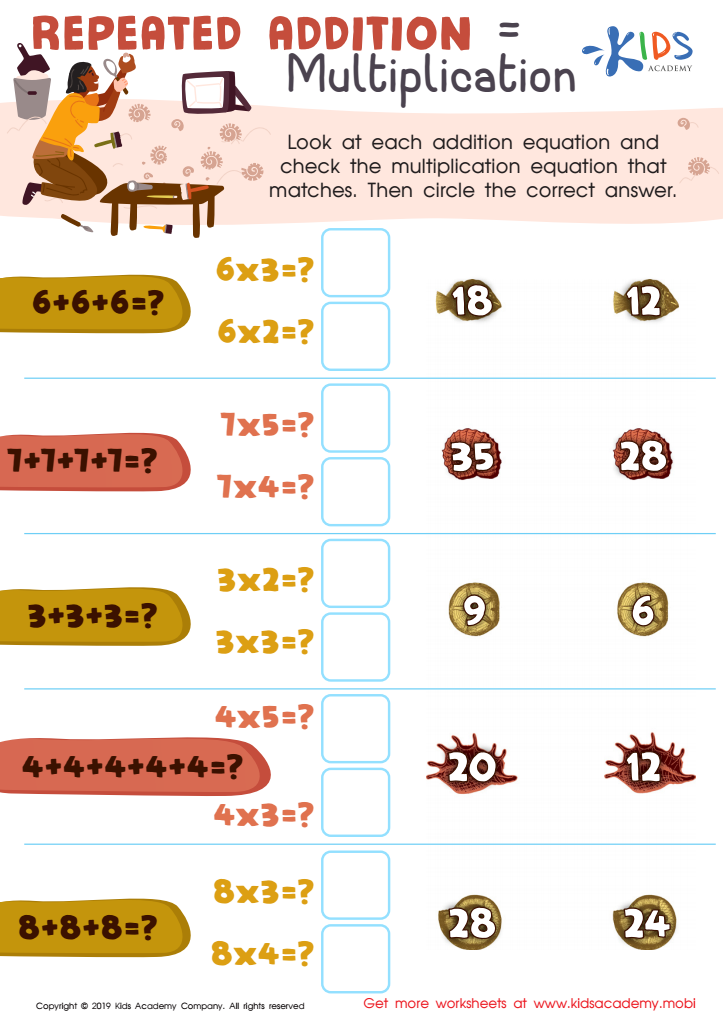

Repeated Addition = Multiplication Worksheet
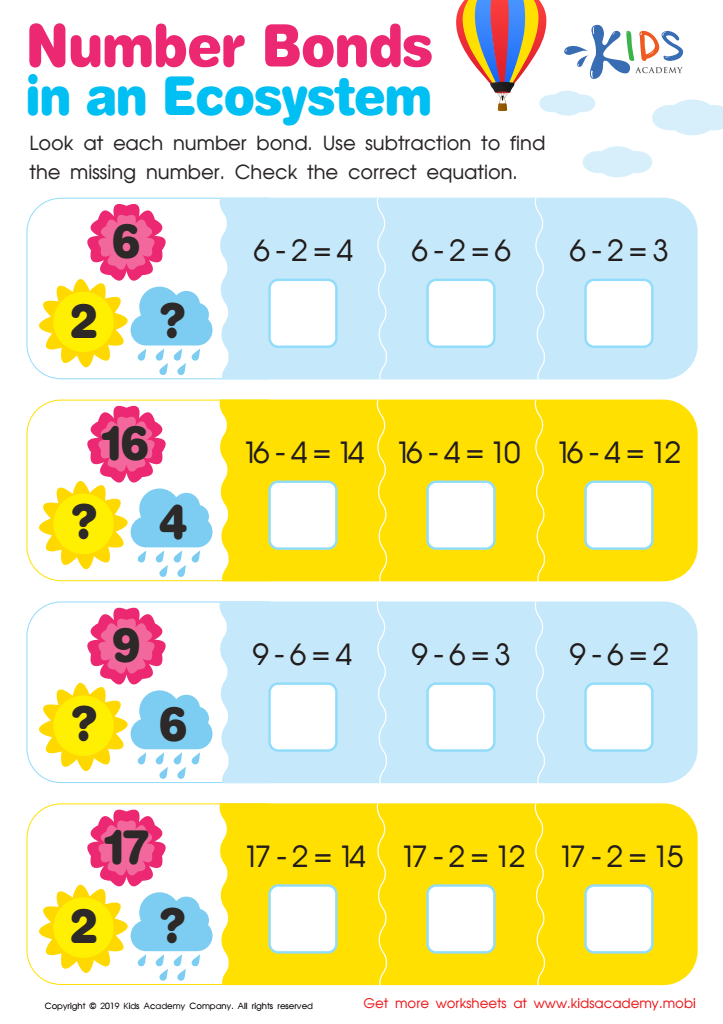

Number Bonds in an Ecosystem Worksheet
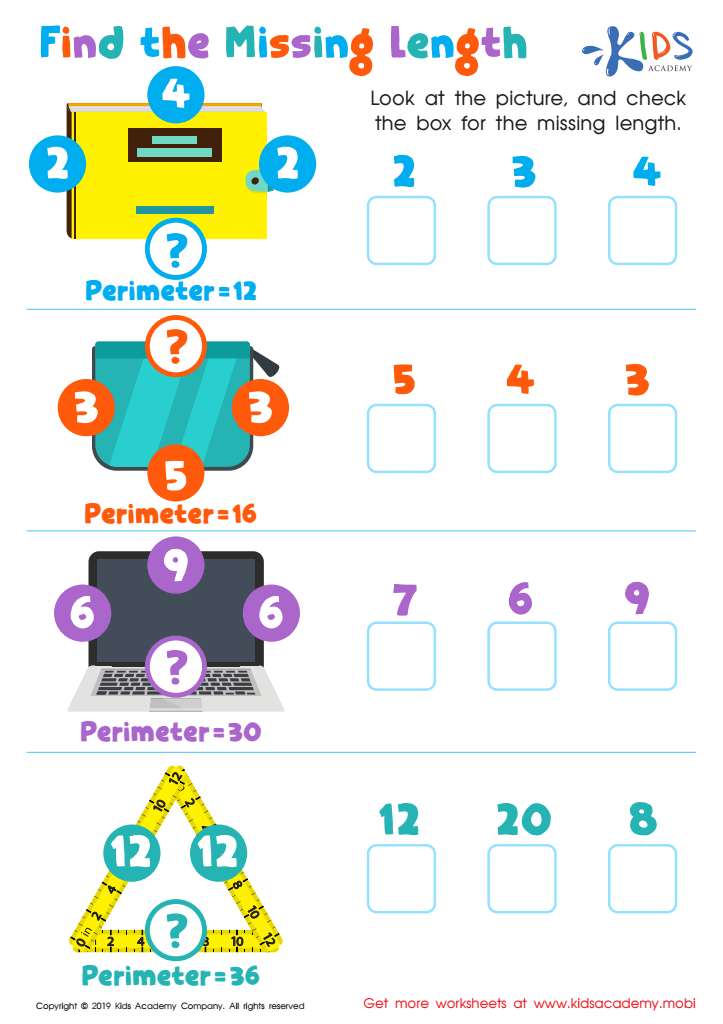

Find the Missing Length Worksheet
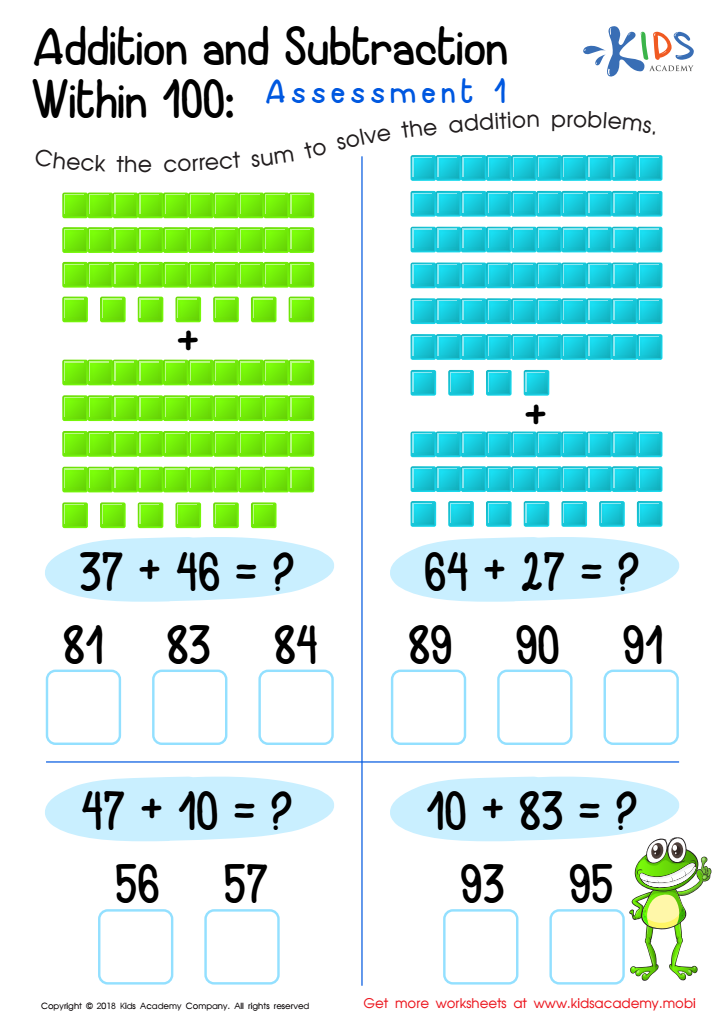

Addition and Subtraction Within 1: Assessment 1 Worksheet
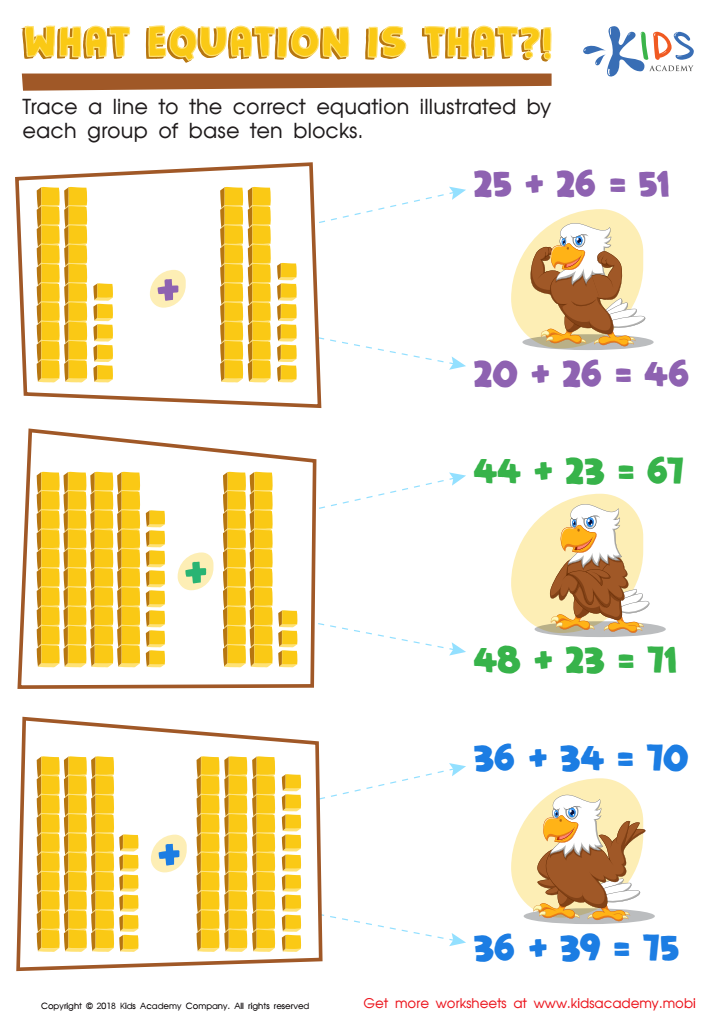

What Equation Is That? Worksheet
Developing problem-solving abilities in addition and subtraction for 5 to 8-year-olds is crucial for several reasons. Firstly, these foundational math skills form the basis for higher-level mathematical concepts, ensuring that children are well-prepared for future learning. By mastering addition and subtraction, children gain confidence and a sense of achievement, which can motivate them to tackle more complex problems.
Secondly, problem-solving promotes critical thinking. When faced with mathematical challenges, children learn to analyze situations, develop strategies, and implement solutions. This analytical approach is not only applicable in math but also in everyday life, fostering a mindset that encourages perseverance and resilience.
Moreover, engaging in problem-solving activities enhances cognitive development. Children become adept at recognizing patterns, making connections, and understanding relationships between numbers. This depth of understanding is essential for effective mathematical reasoning.
Lastly, acquiring these skills early on cultivates a positive attitude towards math. When parents and teachers prioritize problem-solving in addition and subtraction, they help instill a love for learning, setting the stage for lifelong skills. Ultimately, investing time in developing these abilities can empower children, equipping them for academic success and problem-solving in real-world scenarios.


 Assign to My Students
Assign to My Students





















